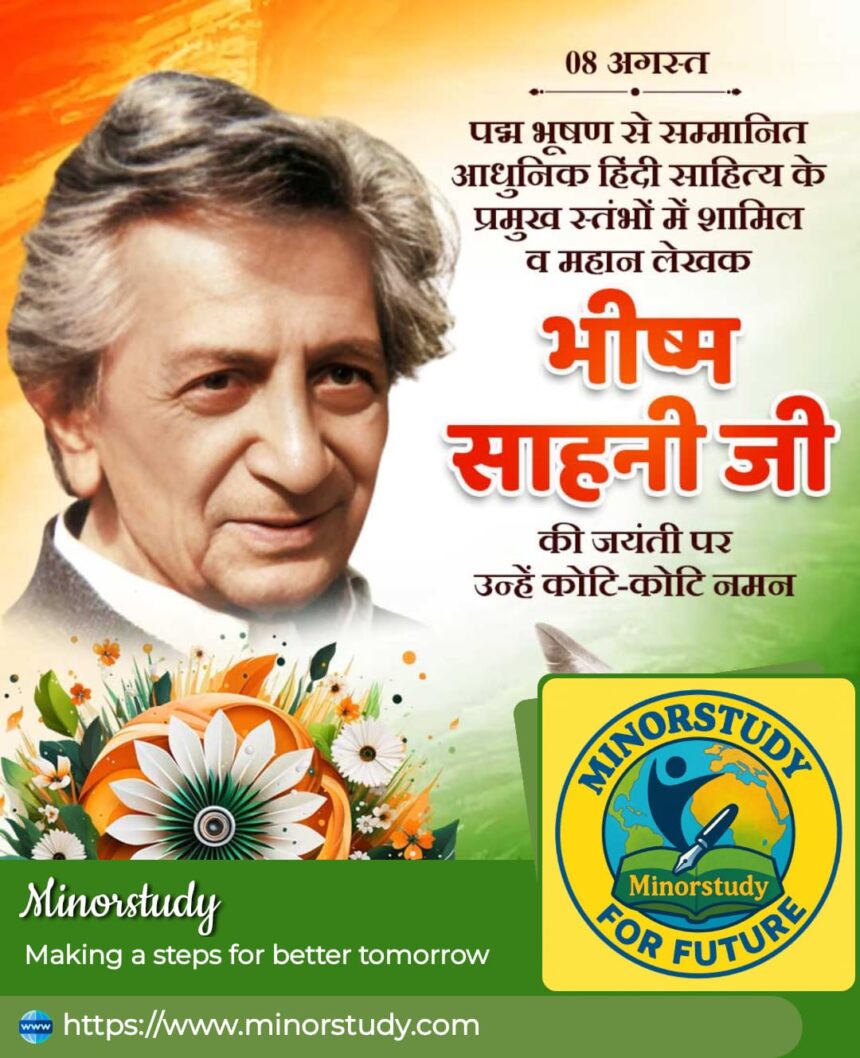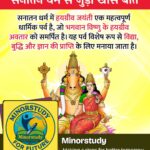Bhisham Sahni – History, Facts, Timeline, Significance, and Daily Life Impact
Bhisham Sahni was not just an acclaimed writer, but also a visionary who shaped Indian literature with his deep humanistic values, powerful storytelling, and social consciousness. His works, especially Tamas, stand as timeless mirrors reflecting the social realities of India. Let’s take a detailed journey through his life, contributions, and the lasting impact he left on literature and society.
History of Bhisham Sahni
Bhisham Sahni was born on 8 August 1915 in Rawalpindi (now in Pakistan) during the British colonial era. He belonged to a family deeply rooted in culture, tradition, and education. His father, Babu Harbans Lal Sahni, encouraged education, and his elder brother Balraj Sahni went on to become one of the finest actors in Indian cinema.
Bhisham Sahni pursued his education with great dedication, completing his M.A. in English Literature from Government College, Lahore. He later earned a Ph.D. in Literature and mastered multiple languages, including Hindi, Urdu, Punjabi, and English.
During the Partition of India in 1947, Sahni experienced the horrors and pain of communal violence firsthand. These events deeply influenced his literary works, especially his magnum opus Tamas, which vividly portrays the human suffering and political manipulation during the Partition.
Apart from being a writer, Bhisham Sahni was a freedom fighter, teacher, translator, theatre artist, and social activist. His works covered themes like communal harmony, human dignity, and the struggle against injustice.
Important Facts About Bhisham Sahni
Birth: 8 August 1915, Rawalpindi, British India
Languages Known: Hindi, Urdu, Punjabi, English, Russian
Famous Works: Tamas, Basanti, Kadam Kadam, Mayyadas Ki Madi, Kabira Khada Bazar Mein
Award-Winning: Won the Sahitya Akademi Award for Tamas in 1975
Social Worker: Worked with the Indian People’s Theatre Association (IPTA) promoting cultural activism
Translator: Translated Russian classics into Hindi, including works by Tolstoy and Gogol
Partition Witness: His personal experiences during Partition shaped much of his writing
Padma Bhushan: Awarded in 1998 for his contribution to literature
Actor: Acted in films like Gandhi (1982) and several plays
Death: Passed away on 11 July 2003, leaving behind a rich legacy of literature and theatre
Timeline of Bhisham Sahni’s Life
| Year | Event |
|---|---|
| 1915 | Born in Rawalpindi |
| 1930s | Completed schooling and higher education in Lahore |
| 1947 | Partition of India – a life-changing event |
| 1950s | Joined Indian People’s Theatre Association (IPTA) |
| 1960s | Translated Russian literature into Hindi |
| 1974 | Published Tamas |
| 1975 | Won Sahitya Akademi Award |
| 1982 | Appeared in the film Gandhi |
| 1998 | Received Padma Bhushan |
| 2003 | Passed away on 11 July in Delhi |
Significance of Bhisham Sahni’s Works
Bhisham Sahni’s writings hold immense significance in Indian literature and beyond:
Voice for the Voiceless: He wrote about marginalized communities, communal violence, and the struggles of ordinary people.
Historical Relevance: His works, especially Tamas, are essential for understanding the socio-political landscape of Partition-era India.
Social Awareness: Through theatre and literature, he inspired generations to think critically about social injustice.
Cultural Bridge: His translations brought world literature closer to Indian audiences.
Observance and Legacy
Every year, literary forums, cultural organisations, and theatre groups commemorate Bhisham Sahni’s birth and death anniversaries. They organise:
Theatre festivals showcasing adaptations of Tamas and his plays
Literary discussions on Partition literature
Translation workshops inspired by his work
School and college seminars to inspire young minds
Wishing on Bhisham Sahni Remembrance Days
On his birth anniversary (8 August) or death anniversary (11 July), admirers often share messages like:
“Remembering Bhisham Sahni – the voice of humanity, the conscience of literature.”
“Your words still guide us, your vision still inspires us.”
Sharing his quotes on social media with hashtags like #BhishamSahni or #Tamas has become a way for readers to keep his memory alive.
Importance in Our Life
Bhisham Sahni’s works remain relevant because:
They teach empathy by showing the human side of historical tragedies.
They warn against communal hatred and the dangers of political manipulation.
They encourage cultural pride through theatre and storytelling.
They inspire us to stand up against injustice, no matter how small our voice may seem.
Daily Life Impacts
Even in our daily lives, Bhisham Sahni’s philosophy can guide us:
In conversations: Avoiding stereotypes and showing respect for all communities.
In decision-making: Standing up for truth even in difficult situations.
In cultural participation: Engaging with theatre, books, and art as tools for social change.
In empathy building: Understanding that every person carries a story worth listening to.
FAQs About Bhisham Sahni
Q1: Which is Bhisham Sahni’s most famous work?
A1: His most famous novel is Tamas, a Partition-era story that won the Sahitya Akademi Award.
Q2: Did Bhisham Sahni work in films?
A2: Yes, he acted in films like Gandhi and also in many theatre productions.
Q3: Was Bhisham Sahni only a novelist?
A3: No, he was also a playwright, translator, actor, and social activist.
Q4: Why is Tamas important?
A4: It’s one of the most realistic depictions of Partition violence and human resilience.
Q5: How can we keep his legacy alive?
A5: By reading his works, participating in cultural events, and promoting literature that fosters unity.
Important Points to Remember
Bhisham Sahni was a multifaceted personality – novelist, playwright, translator, and activist.
He believed literature should reflect real social struggles.
His works still influence Indian theatre, literature, and education.
He bridged cultures through translation.
His life was dedicated to human dignity and harmony.
Conclusion
Bhisham Sahni was much more than an author; he was a conscience keeper for society. His stories and plays remind us that literature is not just about entertainment—it’s about truth, justice, and humanity. In today’s polarised times, his works serve as a reminder to protect empathy, unity, and compassion.
In our daily lives, we can carry forward his legacy by reading more, thinking deeply, and speaking out against injustice—just as he did.
“A society without literature is a society without a mirror; Bhisham Sahni gave us one that still reflects truth.”









Nice post. I was checking continuously this weblog and I’m impressed! Extremely helpful info particularly the ultimate part 🙂 I maintain such info a lot. I was looking for this particular information for a long time. Thank you and good luck.